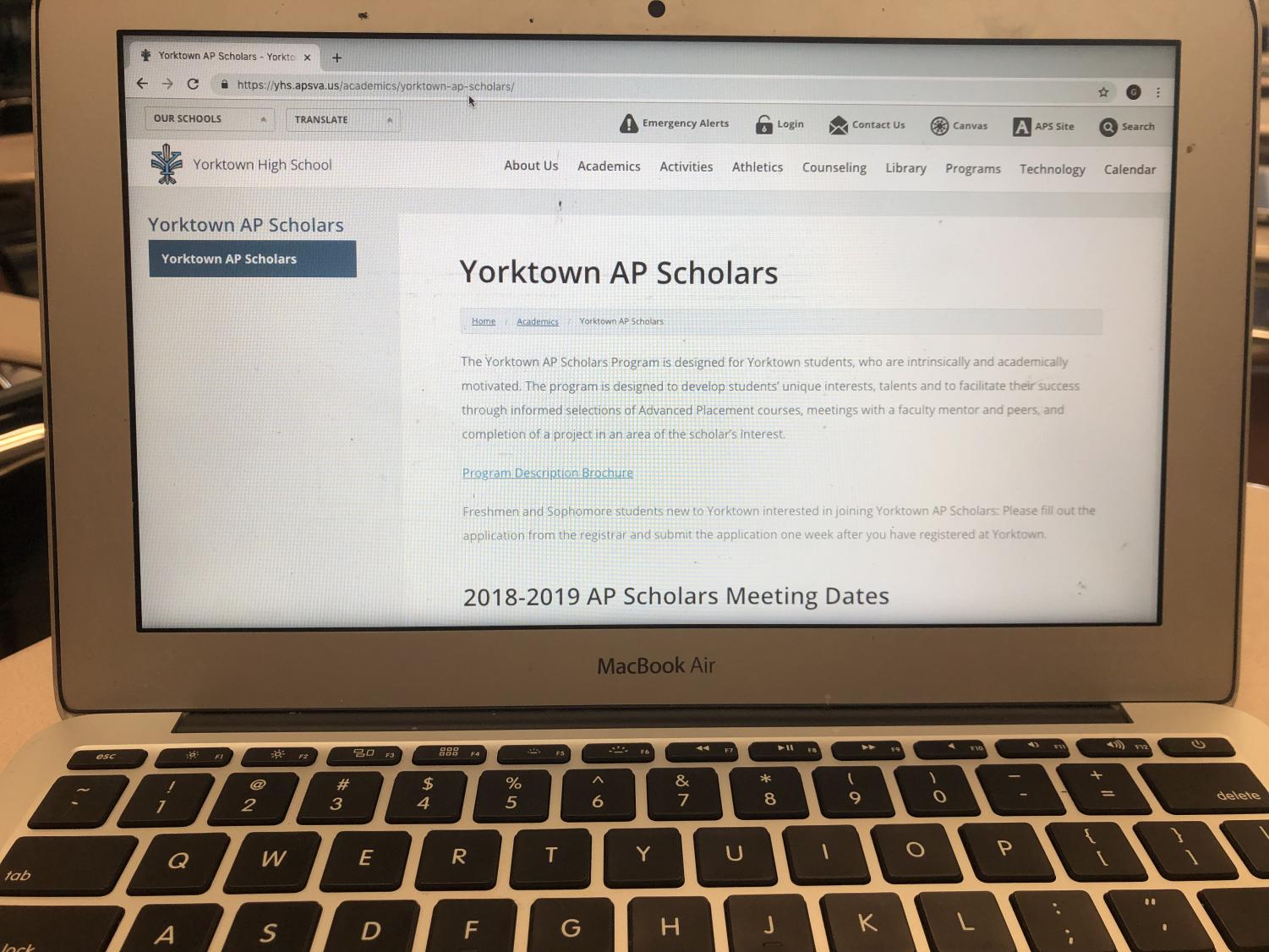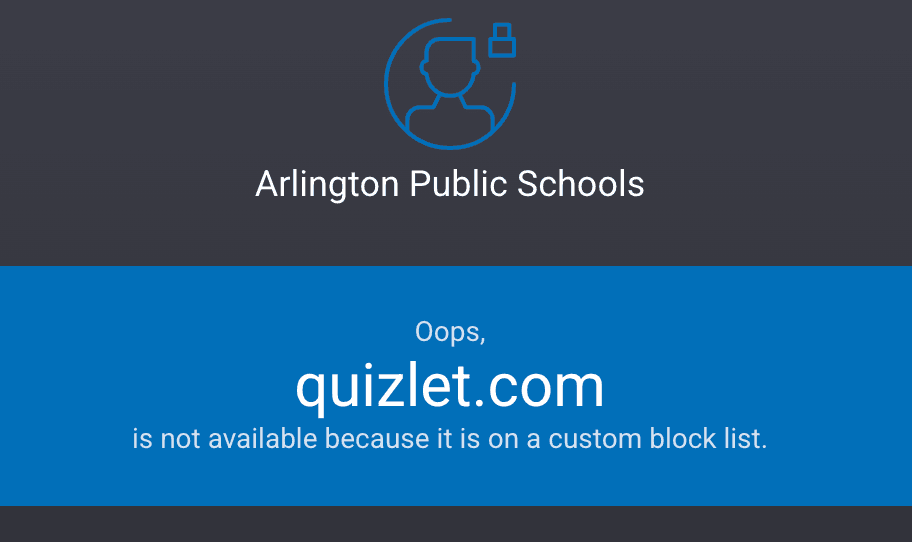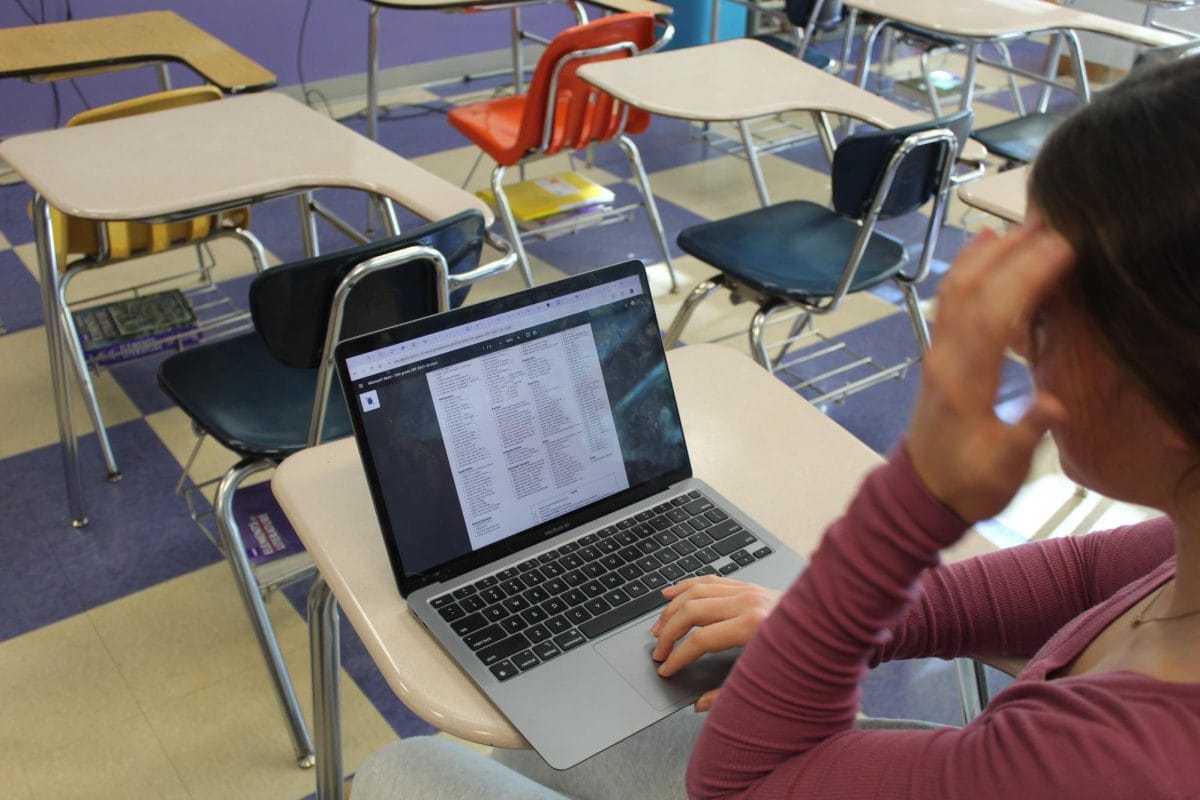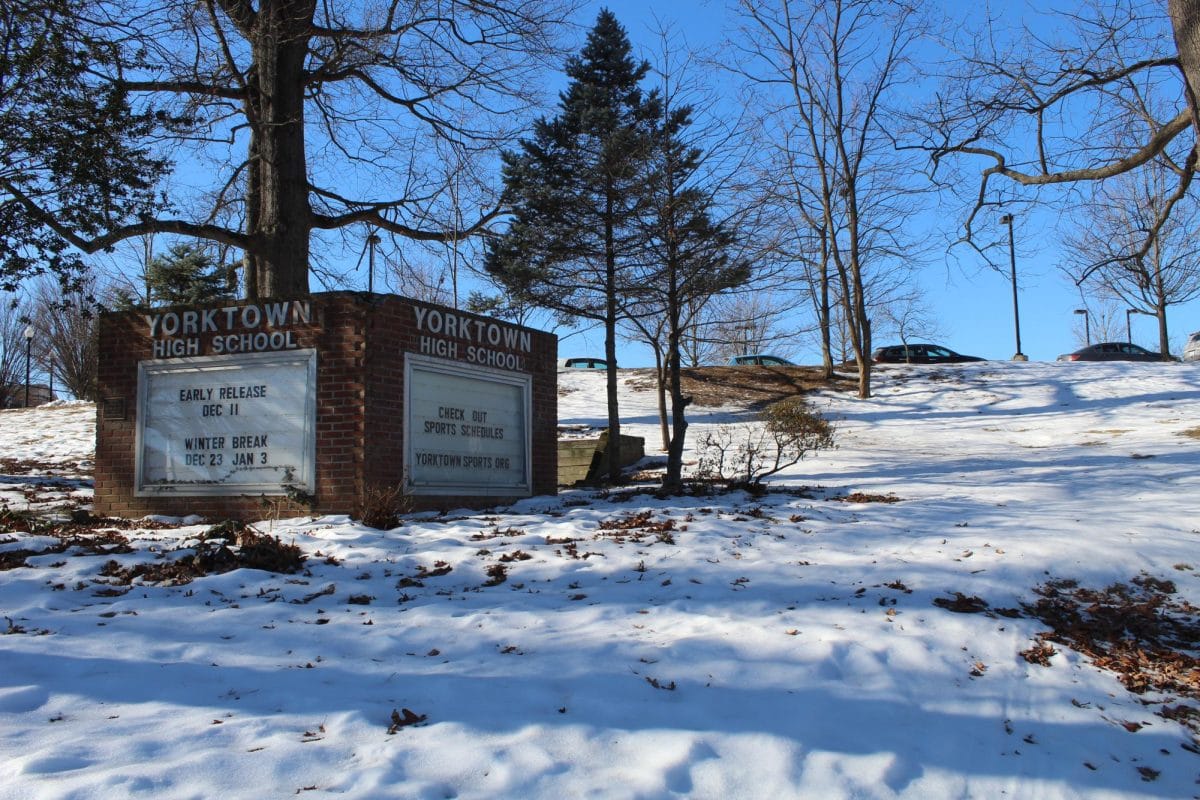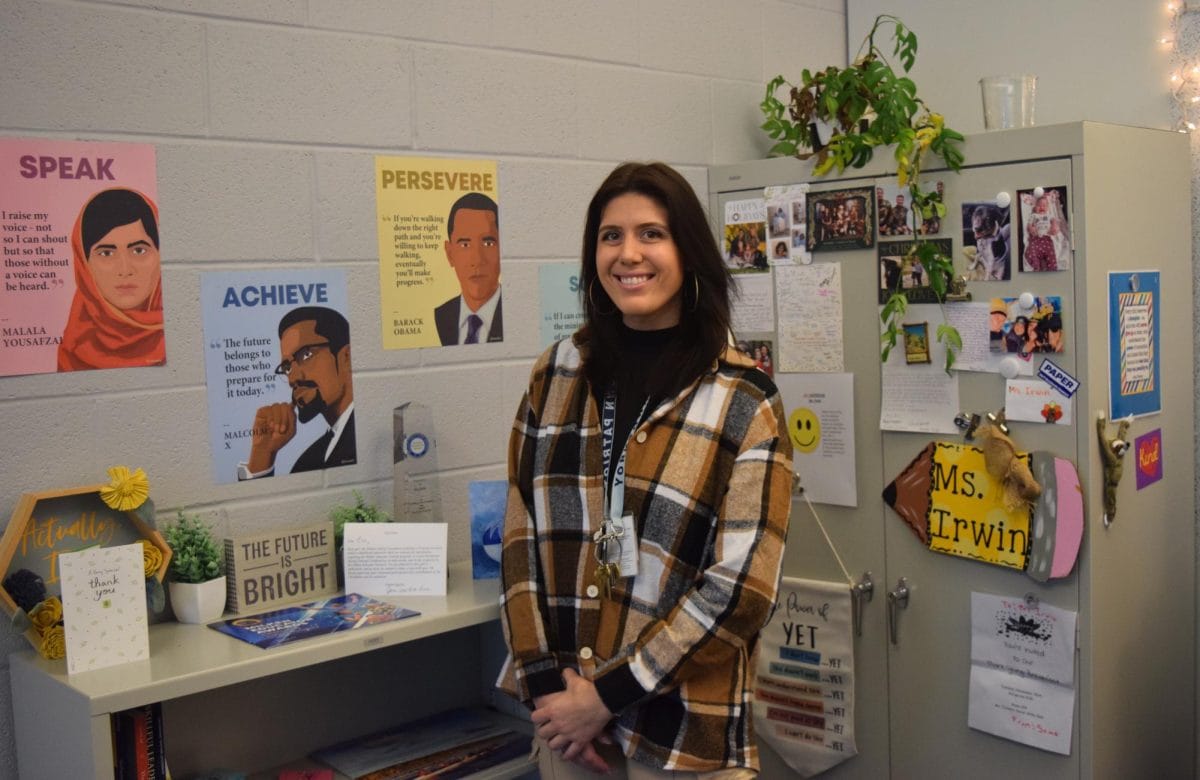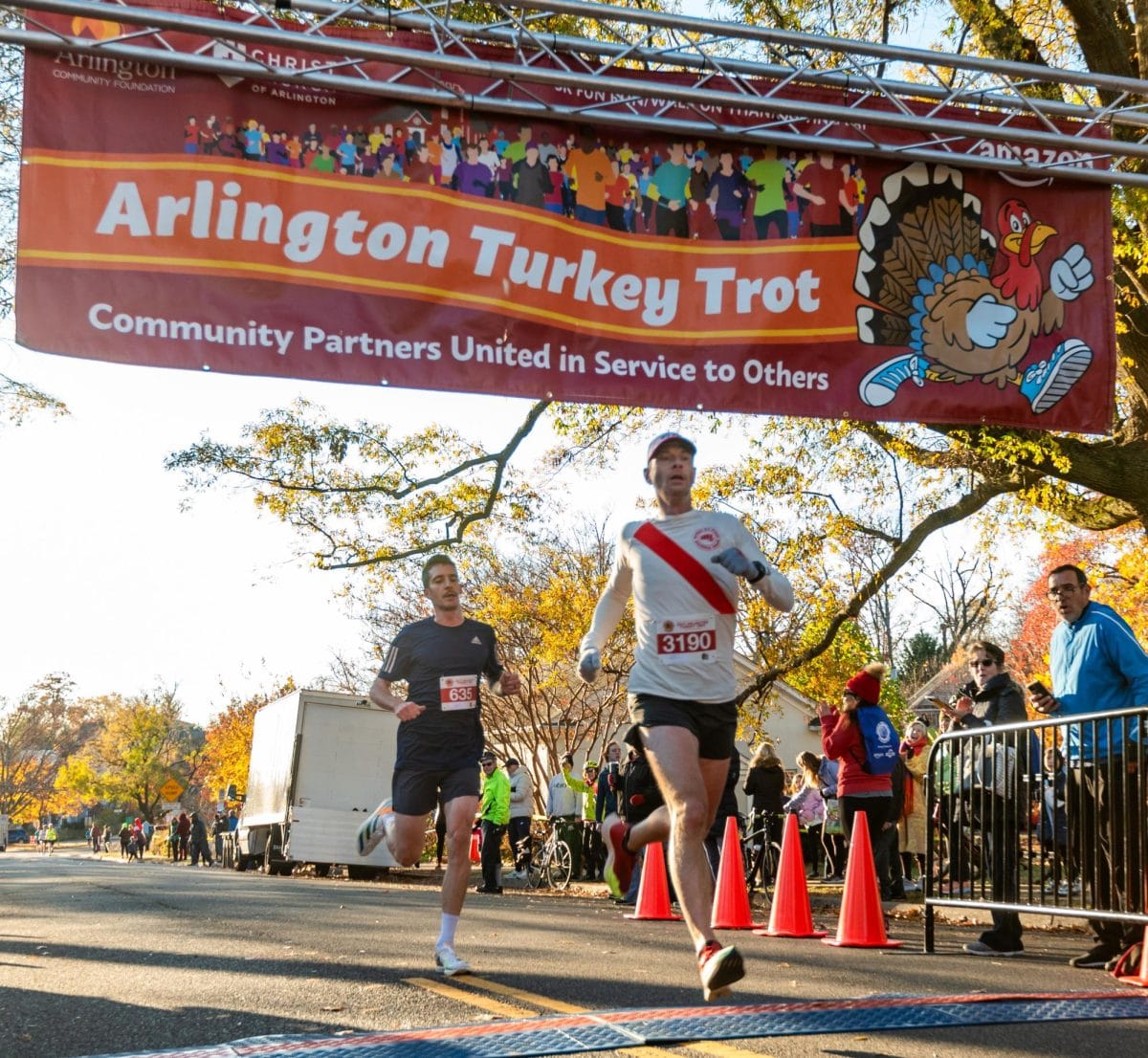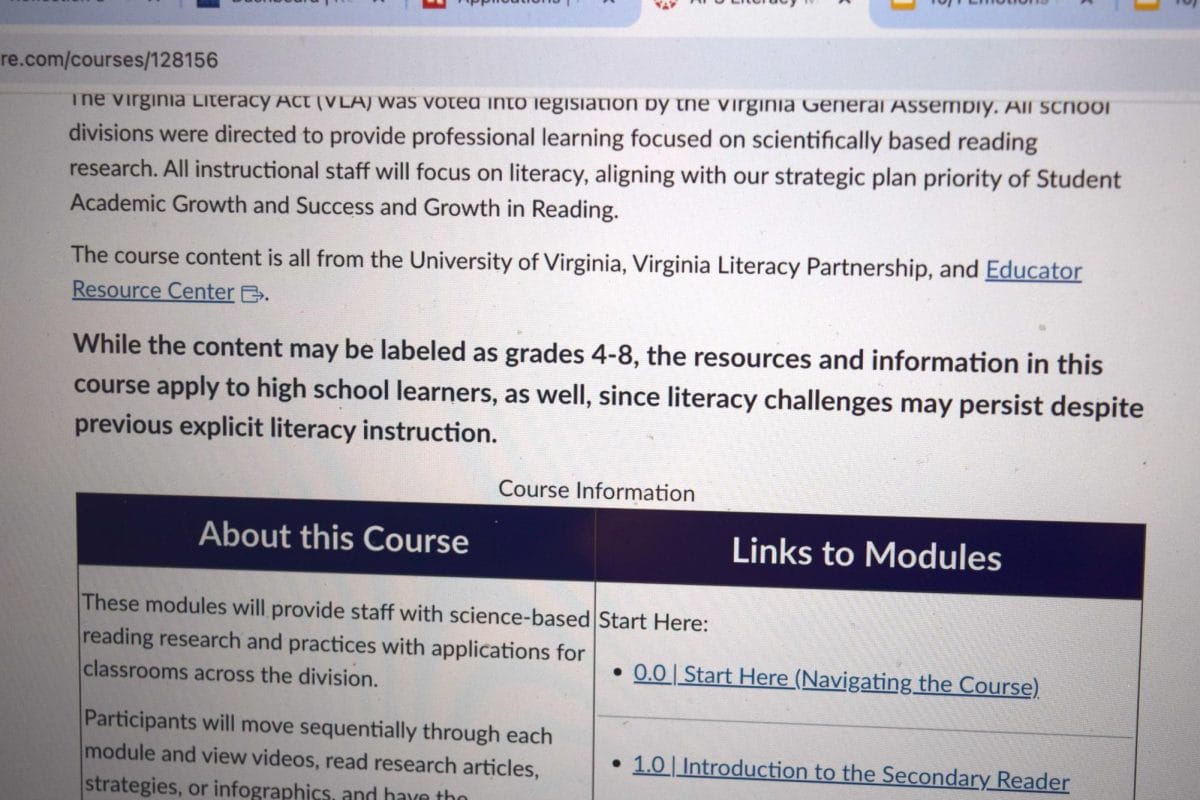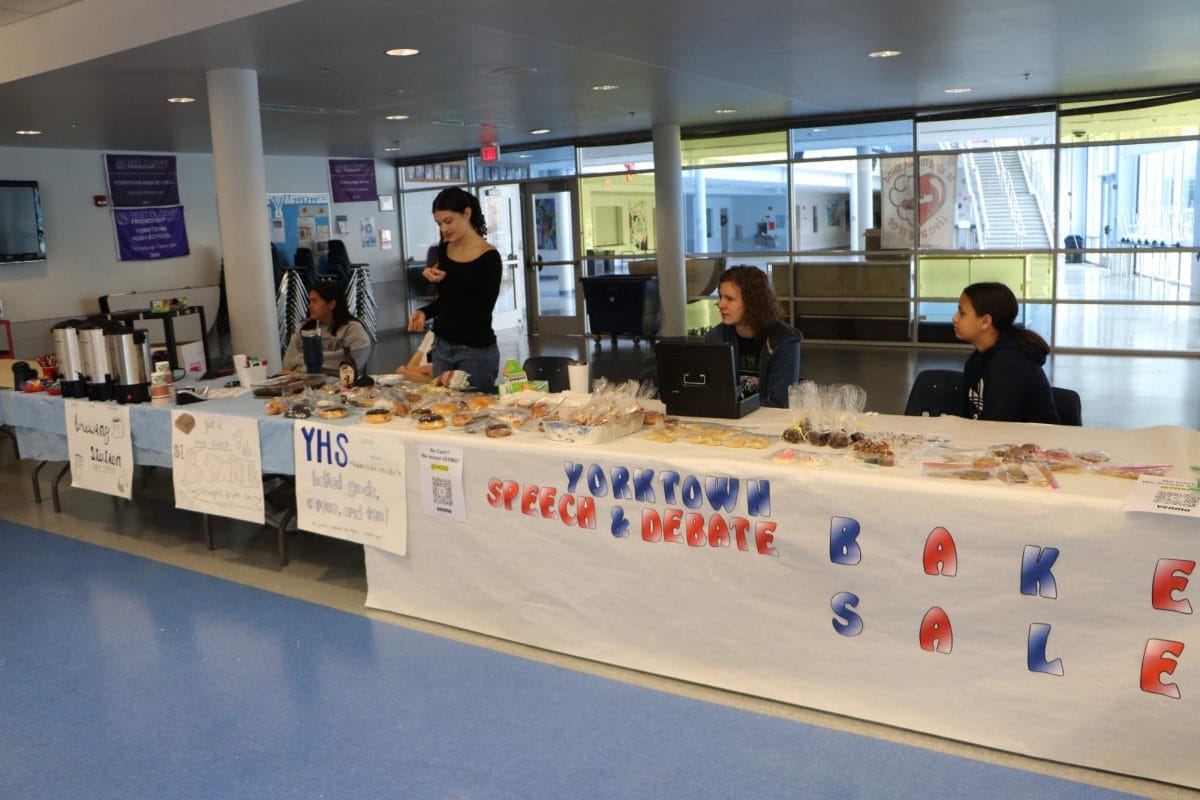As students were savoring their last moments of a dwindling summer, Assistant Principal Suzanne Evans and gifted resource teacher Eileen Wagner were making a crucial decision for the future of the Advanced Placement (AP) Scholars program. Due to a variety of reasons outlined in student and mentor surveys, the pair had come to the conclusion that change was necessary for the program.
Members of AP Scholars soon received a letter in the mail detailing how the program was switching things up for the upcoming school year. AP Scholars, which is “designed for students who are intrinsically and academically motivated” (yhs.apsva.us/academics/yorktown-ap-scholars) would transition from a program to a recognition. Members above ninth grade would no longer be required to attend quarterly meetings with a teacher mentor, and a special interest project was no longer mandatory. AP Scholars was also rebranding to a new name: Yorktown Scholars.
This was not an easy decision for Wagner and other members of the administration to make. For six years, AP Scholars was designed to help develop students’ academic interests by assisting them in making informed decisions on which courses to take, completing an interest project and meetings with a mentor and peers. However, the program was suffering from a number of problems.
AP Scholars, from its inception during the 2013-14 school year, has had one overarching goal: to recognize the school’s top students, who were taking the hardest classes and succeeding in them. In fact, it was first created because too many of the school’s top students were transferring to Washington-Liberty (W-L) to participate in the International Baccalaureate (IB) program.
“We wanted to have something here at Yorktown that would recognize our strongest, top students, but we didn’t want anything that was as confined as the IB program. In the IB program, there are a lot of specific courses students must take, strict service hour requirements and a twenty page research paper. There’s a lot of components to it. So we wanted something that would fit with our Advanced Placement classes, that would recognize students who were working and challenging themselves at a higher level,” Evans said.
While trying to match some of the prestige of the IB program, administrators determined that AP Scholars would be less intense with its requirements, due to one problem that already plagued students at the time and still does: stress.
The requirements for AP Scholars were far more relaxed than the IB program. AP Scholars members needed to take at least six AP courses over their four years here, attend quarterly meetings with a teacher mentor as well as one after-school session, complete a special-interest project and maintain a B or higher average in all of their classes. There were no specific courses that had to be taken, and the special interest project would take significantly less time than any service hour requirements.
While AP Scholars was successful in causing much less stress than the intense IB program, it was nowhere close to matching it in prestige. The IB program comes with a more advanced degree, which is more desirable to colleges. Students enrolled in AP Scholars had the opportunity to use it as a potential recommendation for college applications, however this move ultimately failed.
“One of the things that we did in the beginning with AP Scholars was people could get a letter, saying that they participated. This would count as one of their recommendations. We found that colleges didn’t really care, that they didn’t really want the letter, as it cut down the number of recommendations,” Evans said.
Failing to be an adequate counter to the IB program at W-L doomed AP Scholars from the start. But that was not the final breaking point that caused AP Scholars to completely regroup and turn into a recognition. Surveys of both AP Scholar students and teacher mentors were taken at the conclusion of the last school year, which ultimately led to the change.
The results of the survey showed that students thought AP Scholars was less worthwhile as their high school days progressed. While freshman generally had a positive experience, upperclassmen stopped finding the program helpful. Quarterly meetings with mentors, the backbone of the program, helped underclassmen with the transition to high school, but were less useful as students got older.
“It appeared that for some students, having a mentor was beneficial and they enjoyed it. I know some students enjoyed the special interest project, but the majority of students when we surveyed them last spring said that the part that they appreciated the most was the recognition for the number of APs. Also the focus on grades, to give them the motivation to keep their grades up as well,” Evans said.
The surveys revealed to administrators that students enrolled in the program were feeling stressed out by some of the requirements, when they really just wanted the recognition for top grades. Although AP Scholars was first created with the intention to keep stress at a low level, it had seemingly failed.
“Part of the feedback was that these added pieces were adding some stress to students, by trying to get to meetings, trying to do a project, coming to after-school events. [Stress] was a side effect or byproduct of some of the things we were doing, and we wanted to lessen stress, as opposed to compounding it for Yorktown students,” Wagner said.
The culmination of failing to compete with the IB program, as well as adding more stress to students, led to the complete rebrand of AP Scholars. Now, the mandatory requirement to be a Yorktown Scholar is completing the six AP courses and maintaining a B or better in every class. There is no longer an application, and it is no longer a program, but a recognition.
Students who were members of the program have expressed disappointment in the change. Sophomore Nate Woods looked to the program as a good meeting place between a teacher mentor and students, and found that it gave good advice. He is afraid that quarterly meetings, which are no longer mandatory, will not be the same.
“The best part of AP Scholars was the quarterly meetings with peers and hearing advice from my teacher mentor. I understand that I can still do the meetings with teachers, but I think the majority of students won’t go to those,” Woods said.
AP Scholars changed in order to help students like Woods avoid more stress, while continuing to recognize them for taking the school’s hardest classes and earning high grades. This decision will hopefully benefit students at the school, and Yorktown Scholars will be here to stay.





































